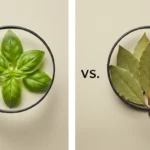Eight years of gardening adventures, and I, Kalsoom Imran, thought I’d seen it all—until my tabby, Whiskers, decided my prized basil patch was her personal salad bar. That got me wondering, is basil safe for cats, or was my little herbivore about to have a tummy ache?
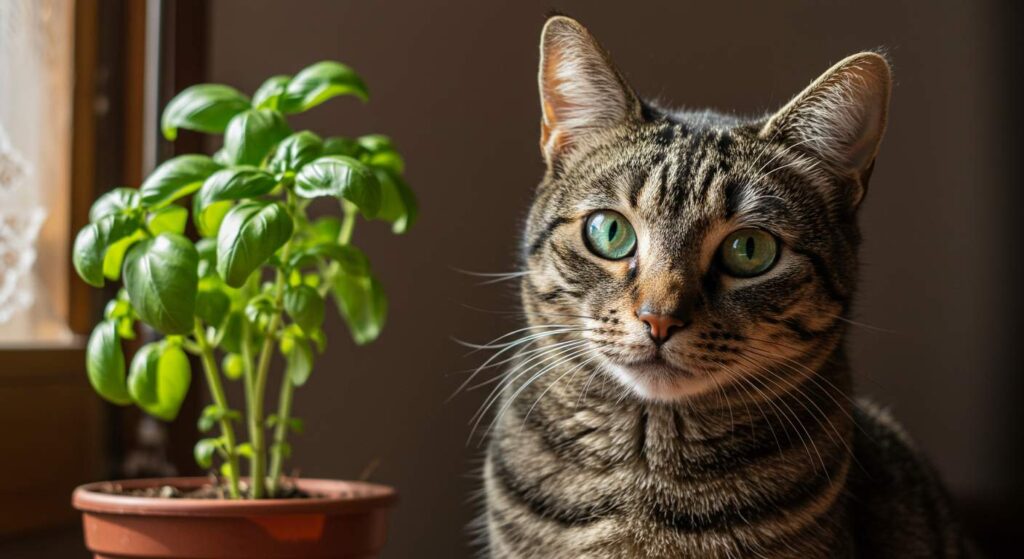
Can Cats Eat Basil? Understanding the Basics
Is Basil Toxic to Cats? The Short Answer
Okay, let’s get right to the heart of it. You’re probably here because you’ve seen your cat eyeing your basil plant, or maybe you’ve accidentally dropped a leaf and your furry friend decided to investigate. So, is basil toxic to cats? The good news is that, generally speaking, basil is not considered toxic to cats. That’s a relief, right? However, like with many things, there’s more to the story than just a simple yes or no.
Basil and Feline Safety: What You Need to Know
While basil and feline safety aren’t mutually exclusive, it doesn’t mean you should start offering your cat a basil salad. The key here is moderation and understanding how your individual cat might react. Every cat is different, and what might be harmless for one could cause a mild upset in another.
We’ll delve into the specifics of cat basil consumption and what to watch out for, but for now, know that a little nibble here and there isn’t likely to send you rushing to the vet.
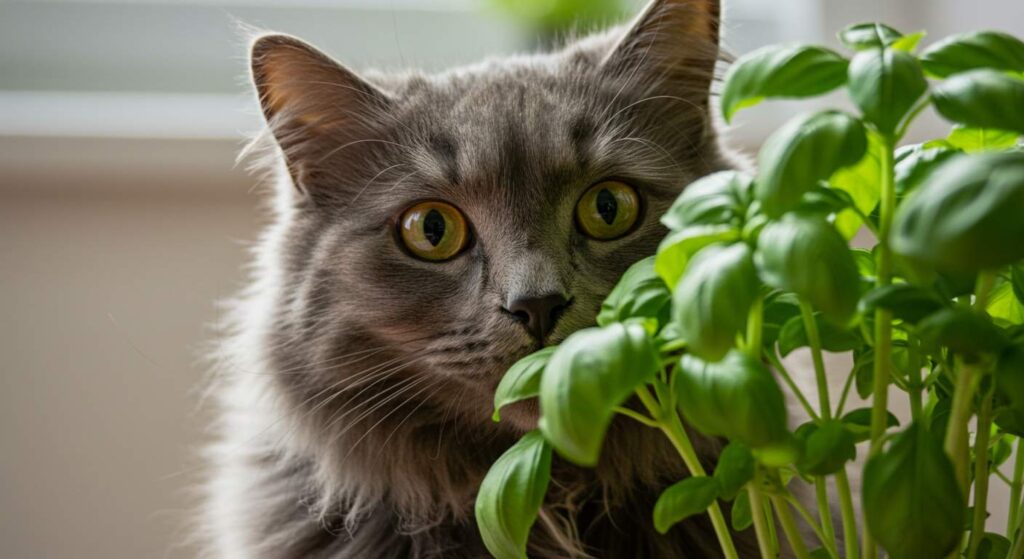
Exploring Basil Consumption in Cats
Cats Eating Basil Leaves: Accidental Ingestion
Let’s face it, cats are curious creatures. They love to explore, and sometimes that means sampling things they probably shouldn’t. Cats eating basil leaves is a common scenario for many pet owners. Maybe your cat was batting at a fallen leaf or decided to take a small bite from your herb garden. Accidental ingestion is usually not a cause for panic, but it’s still good to be aware of what to expect.
Basil Ingestion Cats: What Happens if Your Cat Eats Basil?
So, what happens if your cat eats a bit of basil? For most cats, very little. You might see some mild digestive upset, like a bit of loose stool, or perhaps some slight changes in their litter box habits.
In rare cases, a cat might experience some vomiting, but this is usually if they’ve eaten a larger quantity. The important thing is to monitor your cat for any unusual behavior after basil ingestion cats has occurred.
Can My Cat Have Basil? Intentional Feeding Considerations
Now, you might be wondering, “Okay, it’s not toxic, but can my cat have basil intentionally?” This is where things get a little more nuanced. While a tiny amount of basil might not harm your cat, it doesn’t mean it’s a beneficial treat. Cats are obligate carnivores, meaning they need meat for their nutritional needs. Basil offers very little nutritional value for them and should not be a regular part of their diet.
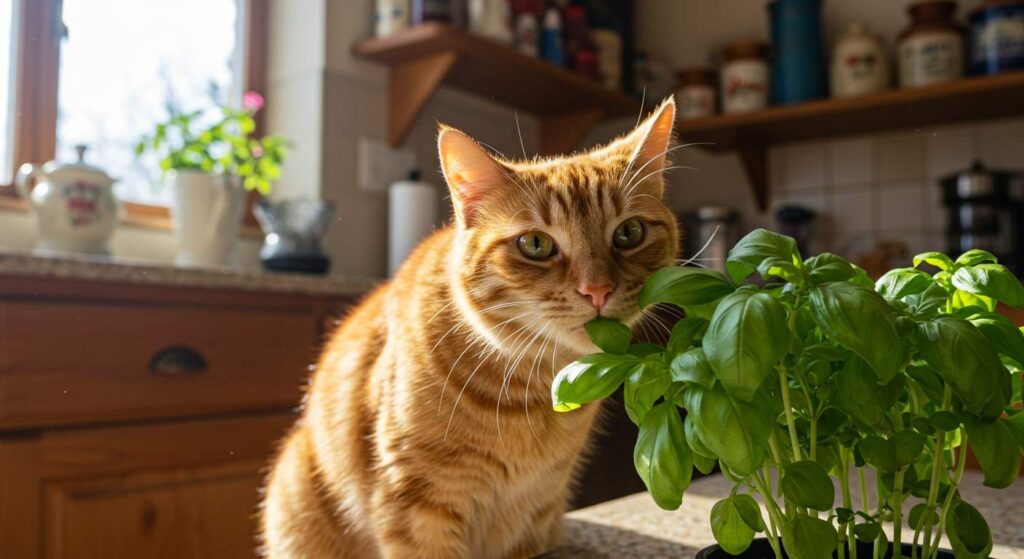
The Safety of Basil for Cats: A Deeper Dive
Is Basil Okay for Cats? Examining the Components
Let’s break down the components of basil a bit. Is basil okay for cats? Well, it contains essential oils, which give it its distinctive smell, and these oils are the main reason some cats might experience digestive issues. While these oils aren’t inherently toxic, they can be irritating to a cat’s sensitive digestive system, especially if consumed in larger quantities.
Basil Plant Cat Safe: Growing Basil Around Your Feline Friend
Many of us enjoy having fresh herbs at home, and basil is a popular choice. But is a basil plant cat safe? The good news is that, generally, yes. Having a basil plant around your cat isn’t likely to pose a significant risk. However, if you have a cat that’s prone to nibbling, it’s best to keep the plant out of their reach. This way, you can enjoy your basil, and your cat can stay safe.
Basil Herb Cats: Understanding Different Forms
It’s also important to consider the different forms of basil. Basil herb cats might encounter could be fresh, dried, or even in the form of essential oil. Dried basil is typically less potent than fresh, but essential oils are highly concentrated and can be more problematic for cats. If you’re using basil essential oil, keep it well away from your cat.
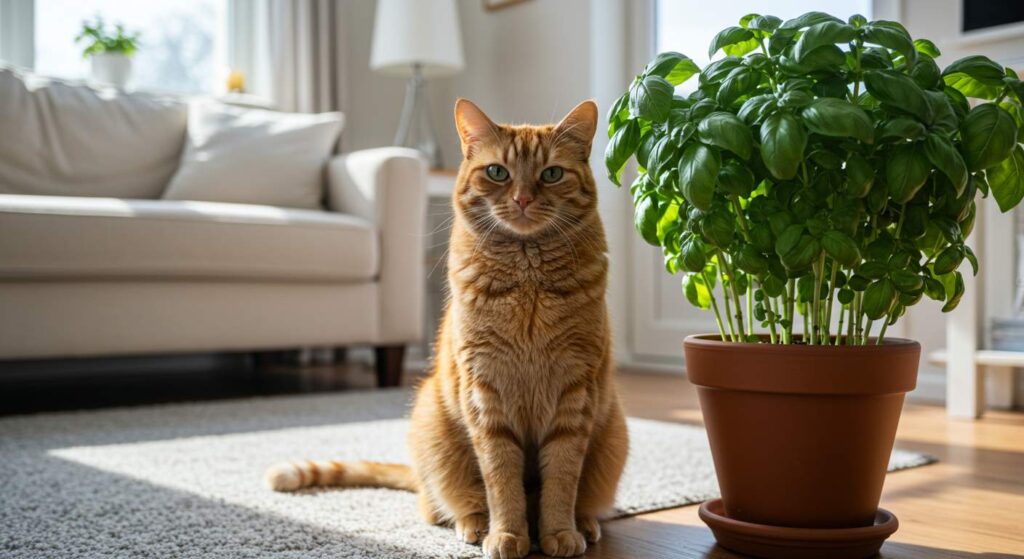
Potential Effects of Basil on Cats
Basil Effects on Cats: What to Watch Out For
So, what are the basil effects on cats you should be aware of? As mentioned before, mild digestive upset is the most common reaction. You might see some vomiting, diarrhea, or a loss of appetite. These symptoms are usually short-lived and resolve on their own. However, it’s always a good idea to keep a close eye on your cat after they’ve ingested any amount of basil.
Will Basil Hurt Cats? Identifying Adverse Reactions
The big question: will basil hurt cats? For the vast majority, the answer is no, not seriously. However, some cats might be more sensitive than others. If you notice any of the following signs, it’s important to contact your vet: excessive vomiting or diarrhea, lethargy, loss of coordination, or any other unusual behavior. These could indicate a more severe reaction.
Basil Dangers for Cats: When to Be Concerned
While basil dangers for cats are relatively low, there are situations where you need to be more concerned. If your cat has ingested a large amount of basil, or if they’re showing severe symptoms, it’s time to seek veterinary advice. Also, if your cat has any pre-existing health conditions, it’s best to be extra cautious and consult with your vet before introducing any new foods, even herbs.
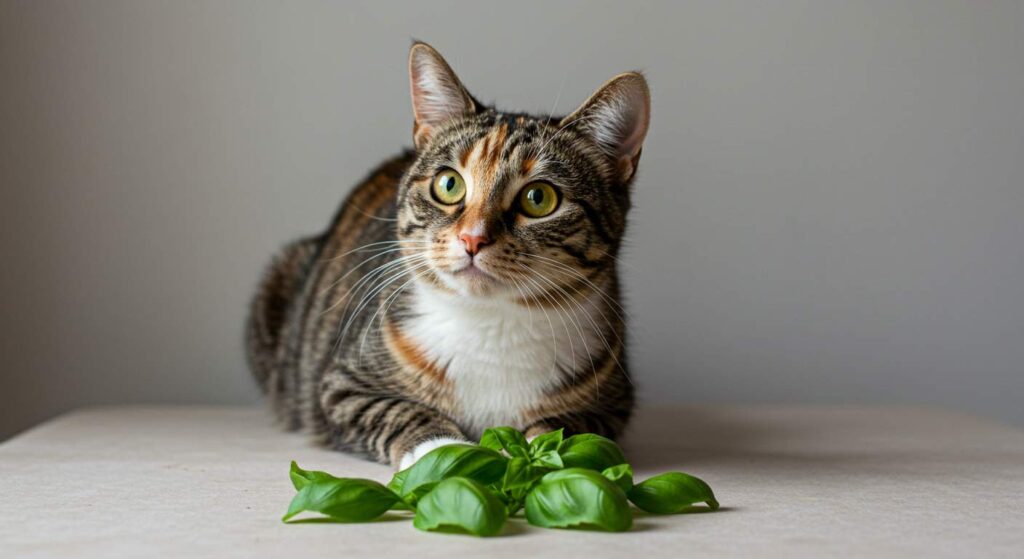
Basil and Cat Health: What Experts Say
Cat Health Basil: The Nutritional Value (or Lack Thereof)
Let’s talk about cat health basil and its nutritional value. Or rather, the lack thereof. As mentioned before, cats are obligate carnivores and require a meat-based diet. Basil provides very little in terms of the nutrients they need. It’s not a source of protein, essential fatty acids, or vitamins that are crucial for their well-being. So, while it might not be harmful in small amounts, it’s certainly not beneficial for their health.
Pet Safe Basil: Choosing the Right Herbs for Your Cat
If you’re interested in adding some herbs to your cat’s environment, it’s important to choose wisely. Pet safe basil is generally okay in small quantities, but there are other herbs that are considered to be more beneficial for cats, such as catnip or catmint. These herbs can provide enrichment and even some mild health benefits, unlike basil.
Cat Friendly Herbs Basil: Expanding Your Cat’s Herb Garden
If you’re keen on creating a cat friendly herbs basil garden, consider adding a variety of safe options. While basil is usually fine in small amounts, you might want to focus more on herbs that are known to be enjoyable and safe for cats, such as valerian, chamomile, or even wheatgrass. This way, you can create a safe and enriching environment for your feline companion.
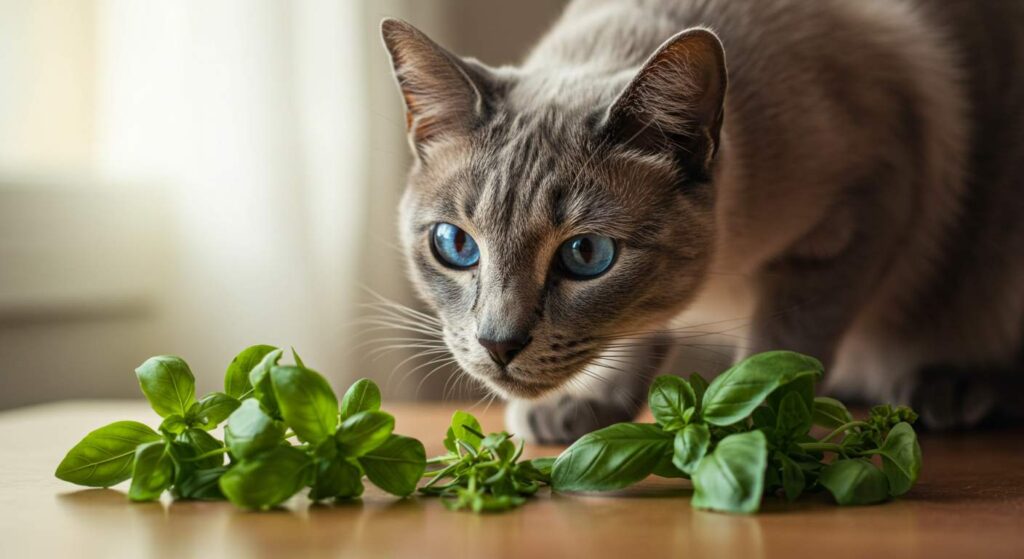
Addressing Common Concerns About Basil and Cats
Is Basil Poisonous to Felines? Clearing Up Misconceptions
One of the biggest concerns pet owners have is whether is basil poisonous to felines. The short answer is no, basil is not considered poisonous to cats. However, as we’ve discussed, it can cause some digestive upset in some cats, especially if ingested in larger quantities. The key is to understand the difference between something being toxic and something being potentially irritating.
Basil for Kitty: Safe and Responsible Usage
If you’re determined to offer basil for kitty, remember to do so responsibly. Keep the amount small, and monitor your cat for any adverse reactions. It’s best to think of basil as an occasional treat rather than a regular dietary addition. Also, make sure the basil is fresh and clean, and avoid any basil that might have been treated with pesticides or other chemicals.
Basil Harmful to Cats? When to Seek Veterinary Advice
While the risk of basil harmful to cats is generally low, it’s crucial to know when to seek veterinary advice. If your cat is showing severe symptoms, such as persistent vomiting, diarrhea, lethargy, or loss of appetite, it’s time to contact your vet. Don’t hesitate to seek professional help if you’re concerned about your cat’s health. It’s always better to be safe than sorry.
